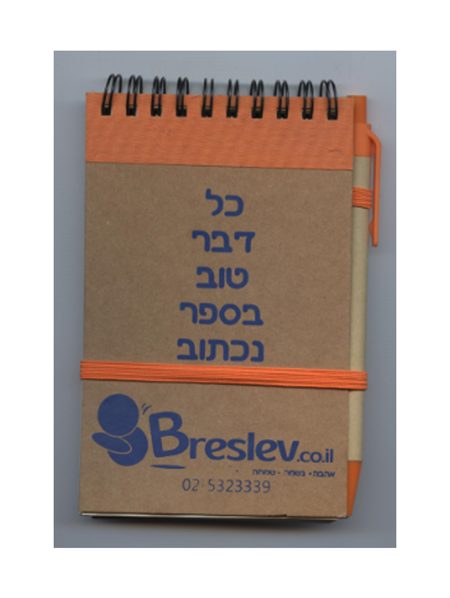
The Ninety-Minute Club
Sure, ninety minutes is the length of a soccer game; it’s also the length of a daily personal prayer session for those who really desire character improvement…

Translated by Rabbi Lazer Brody
In Forest Fields, Part 64
No, ninety minutes is not just the duration of a soccer match…
The ninety-minute personal prayer session is for those who seriously desire to make a major character improvement. They devote the first 30 minutes of their personal prayer session to expressions of gratitude and  self-evaluation, then devote an entire hour to the particular character trait (or other issue) that they’re working on. Even though the 90-minute session is 50% longer than the 60-minute session, the time devoted on the issue at hand in the 90-minute session is double than it is in the 60-minute session, namely, an entire hour instead of a half hour. As such, one can accomplish in 90-days of 90-minute sessions what he would otherwise accomplish in six months of 60-minute sessions. And, if one sees blessings and miracles within 90 days of 60-minute sessions, just imagine the wonderful surprises in store for him after 90 days of 90-minute sessions!
self-evaluation, then devote an entire hour to the particular character trait (or other issue) that they’re working on. Even though the 90-minute session is 50% longer than the 60-minute session, the time devoted on the issue at hand in the 90-minute session is double than it is in the 60-minute session, namely, an entire hour instead of a half hour. As such, one can accomplish in 90-days of 90-minute sessions what he would otherwise accomplish in six months of 60-minute sessions. And, if one sees blessings and miracles within 90 days of 60-minute sessions, just imagine the wonderful surprises in store for him after 90 days of 90-minute sessions!
One issue – one hour
Let’s discuss the practical side of praying for one issue for one hour, using as an example overeating, something that plagues many people.
First of all, to make our prayers effective, we should learn as much as possible about the subject at hand. In the case of overeating, we should learn how detrimental it is to our physical health, how it presents a barrier in serving Hashem, and the rewards due to the fortunate person who succeeds in overcoming the habit.
One can learn about the root spiritual causes of overeating in Likutei Moharan I:47.
Sefer HaMiddot says that overeating is detrimental to emuna.
Eating properly is strongly connected to wholesome speech. Therefore, if a person wants to overcome the habit of overeating, he must be especially careful to tell the truth and to avoid angry speech such as yelling or cursing.
Many issues that affect proper eating should be included in the hour’s daily prayer. A person should ask Hashem to help him eat slowly and be satiated. He should pray for guidance in eating only what is healthy and what his body needs. He should ask Hashem to help him fulfill all the mitzvas that are associated with mealtime, such as blessings before and after and washing the hands. He should pray that he should never eat anything questionably kosher.
Next, he should evaluate himself and his eating over the past 24 hours. Did he eat in holiness, or as a glutton? Did he eat healthy foods, or did he eat sweets and junk foods? Did he eat between meals? Could he have sufficed with less food?
People have accomplished more in personal prayer than they ever hoped to accomplish by means of any diet or weight-loss program. With Hashem’s help, a person can learn to eat properly, lose weight, and serve Hashem with greater agility with no fads, drugs, or artificial means.
By repeating our heart’s desires daily and reinforcing our goals with renewed commitment each day, we gradually achieve more than we ever dreamed we could.
The central point
Each bad habit or bodily lust stems from some central point that is the core reason for the bad habit or negative trait. For example, a person might deviate from the truth because of a low self-image; he thinks that people will admire and respect him only if he is greater than what he really is. He therefore fabricates untrue tales about himself.
If such a person would pray for an hour a day asking for help in speaking the truth, his prayers would be lacking in that they wouldn’t address the central point or core reason of his problem. He therefore must pray to Hashem to help him identify and appreciate his own very special qualities that Hashem has given him. He should pray for a positive self-image and for emotional independence so that he won’t need to depend on others for approval like a spiritual beggar in need of a few “pennies” of constant compliments.
Once a person establishes the central point of his negative characteristic or bad habit, personal prayer becomes so much easier and effective. For example, a low-level prayer would be praying for a bottle of aspirin. Better than that would be a prayer to recuperate from the flu. But, the best prayer would be for the central point, asking Hashem to help him realize which misdeed he committed that invoked the harsh judgment of catching a flu virus, and to make teshuva for it.
To be continued














Tell us what you think!
Thank you for your comment!
It will be published after approval by the Editor.